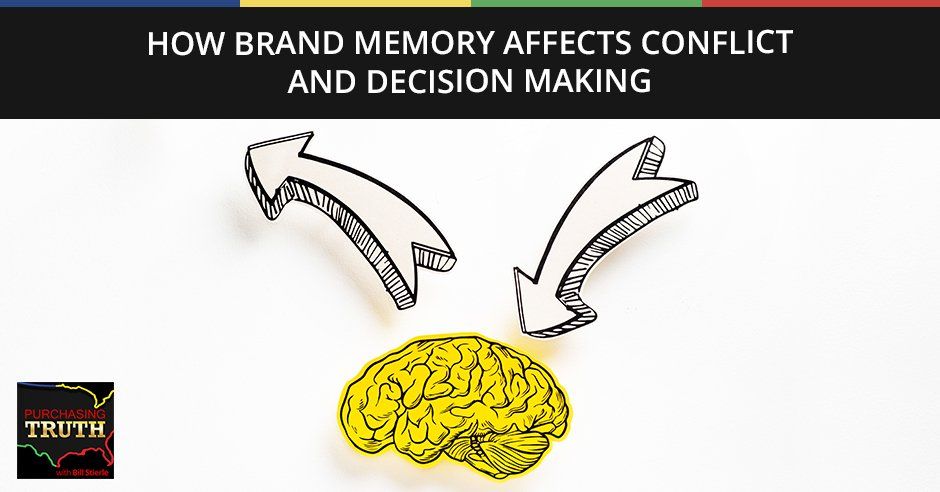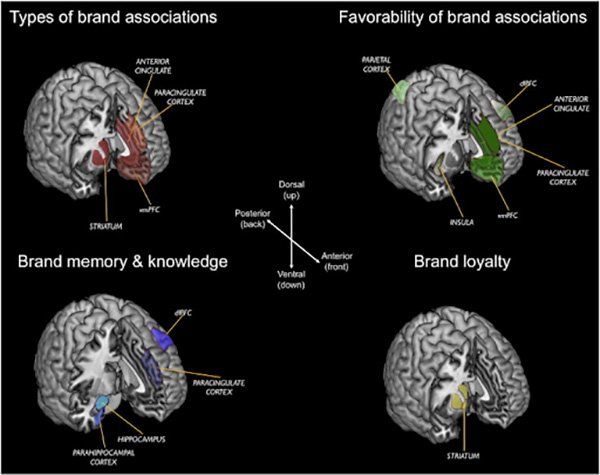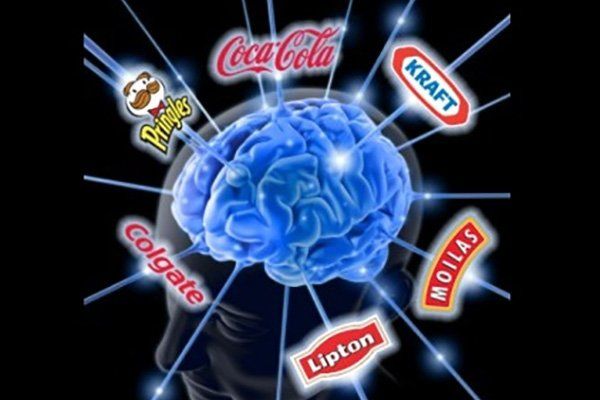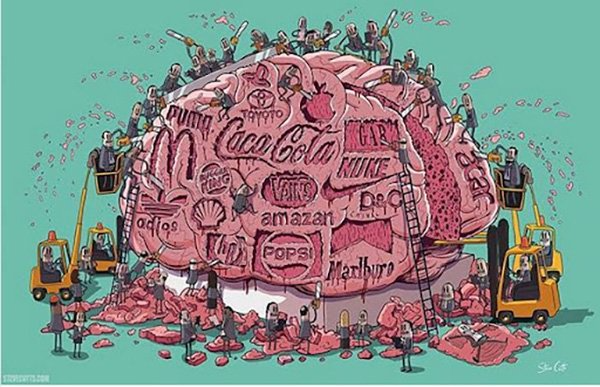How Brand Memory Affects Conflict And Decision Making
Subscribe Today!

Certain things are immediately recognizable—McDonalds, the Marlboro Man, the Coca-Cola logo. The power of brand memory and recognition keeps these at the forefront of our minds, and it's often the same for politicians and other known personalities who have built their brands. So, how does recognizing a brand change how we respond? In this episode, Bill Stierle and Tom discuss and analyze how brand recognition works and how it affects our conflict resolution and decision-making skills. Listen for more great insights from our hosts as they go about finding the truth about branding.
---
Watch the episode here
How Brand Memory Affects Conflict And Decision Making
We're going to talk about brand impressions and how they stick in the brain. There are so many great examples of this. I'm excited to talk to you about this, Bill.
The way that brand imprints on our brain, whether it's a business, political candidate or political party, you want to get your message out about how can you sell whatever product that you're trying to get to the marketplace to help others. Getting our brand, image or product established inside our client or customer's mind is essential. Companies spend a lot of money on this stuff to make sure it sticks.
Certainly, there are lots of brands we all know. We know their logos instantly. We hear their names that have an impression in our brain as to what that brand product is or what they stand for. As you said, companies spend billions of dollars every year to establish those brand impressions, don't they?
The way it works is that there's this brand memory or knowledge that we have about this brand. What happens is when we go to make a decision, we might not buy the brand for us but we'll buy the brand for others. For example, if you and I are hosting or doing a party, we might not go to the store to buy Coca-Cola, Pepsi or any other soda brand or spray. If we have the thought that somebody at the party might ask for it, it's coming off the shelf. That's what brand memory knowledge does.
What brand loyalty is that, "I am going to buy it because it's an accepted piece in our society." Think about how much a brand spends to be an item that's purchased on the 4th of July, the hot dog brand, the bun and all the predictable sodas. You and I can go to 100 or 1,000 different parties and all the food and drinks will be the same.
It's probably Ball Park Franks or something like that. I remember even the last time. We had you and your family over to our house. I was like, "I got to get Sprite because I know that Bill's son likes Sprite." We don't drink soda at all. We never have soda in the house. "Am I looking to go buy the cheaper off-brand one?" No, I'm going to get the one.
It's easy as the personal feel of relief or delight. The same thing happens with alcohol around the holiday. Do you have the kind that you know that your guests are going to want to enjoy? You're going to buy that. That's why all the alcohol commercials are about ready to hit us before the Christmas season. We're going to see alcohol, jewelry, and all of those items to make a difference. It's important and valuable to recognize the importance of, "Every kiss begins with K." If you find a brand line that sticks and if it sticks in a person's brain, then you've been able to keep that thing that made you feel good in front of you. It's the Make America Great party.
This very thing we're talking about is why Donald Trump defeated all the other Republicans that he was running against in the primaries in 2015 and 2016. There's a combination of reasons but it's also largely why he won the presidency. This Make America Great Again slogan became a brand. It was, "Whether you liked it or hated it, everybody knew it." Everybody who sees a red hat with any writing on it, even if it's too far away and you can't read the words, everybody thinks it says, "Make America Great Again."
That's when, "Is this element a brand damage piece?" Here's the weird part about it. Even if we look at Coca-Cola as something that, "Coca-Cola will dissolve the rust off of nuts and bolts, if you want to clean the grease off of nuts and bolts, that's a pretty good thing. We can clean the grease off of nuts and bolts by using Coca-Cola," and you see a picture of that, it still doesn't mean that you're not going to buy Coca-Cola and drink it. That's the way even though the acidic quality, damage to your body or amount of sugar in it, your brain overrides it even though it's not healthy for your body.
It's the same with a cigarette, "I want to be known as a cool person. I'm going to smoke a cigarette and I'm doing this with cigarettes." It's not until there was a significant amount of brand damage towards, "If you want to do cancer, cancer and cigarettes are hooked together." They had to go after cigarettes and recognize, "Not only that it could cause cancer, but they also made it addictive. They put stuff in it so that it makes the brain come back to it."
Even though that's all very true, the brands associated with cigarettes, the biggest one that I remember is either Marlboro or Camel. Camel had all these great ad campaigns at one point and created a character that was a likable character but the Marlboro man was this cool cowboy. A movie called Breaking Away that Dennis Quaid played a role in that, I remember him driving in that role by a billboard that has the Marlboro man on his horse and riding. He is smoking a cigarette as he is driving. He sees the Marlboro man and salutes him as he is driving by. Talk about a brand impression.
To hear that it's coming out of your brain, all of those things are in alignment with that literal myth of the American cowboy. It's the myth of what the cowboy was. The West was settled more by women that were prostitutes than cowboys were. That's more of what the truth is. I bet you didn't even know that factoid. In fact, the first state that let women vote was the state that had the most brothels in it because the women had the most political power in it. They say, "We're voting. Forget about you, guys. You'll be lucky. Don't cross the women." It was Montana but I'm not sure.
It's fascinating how a brand will stick. The Marlboro man conquered the test. How about the Pony Express? The Pony Express, "We deliver. Here's the image of the cowboy, letter and delivery." The company was only around for a year and a half or some short amount of time. They only existed for this in the microsecond but the brand is like, "The Pony Express was the fastest thing ever. It's a way to get things." To own or establish a brand is to put that image and make sure it sticks to the brain. The same way as you brand a cattle with a hot iron is the same thing that happens to the brain. It lands on there.
If there is thought by a Democrat that you are going to change somebody off the brand because you had a liar, cheater, philanderer or misogynist, the brand has not been damaged. It's just been chipped away and recrafted to be okay with those sets of values. It's okay to call and try to damage the other brand with socialism and communism, and they want to give everything away. What people don't understand is there's still a core need that is not being addressed by both parties. The coordinate is fairness.
We're not in a fair and equitable society. How could we be because both sides are yelling at others about not being fair? "You're not fair because you're giving things away or taking money away from rich people." They're still not building an equitable society or things because cooperation and collaboration are not as sexy as a winner or loser. That dynamic of a winner or loser is something that our brain appeals to more than collaboration and cooperation because we don't have to.
This is why the Republicans are succeeding even as fractured as they are, even though a lot of them will privately say they don't want Donald Trump. The old senator running for re-election who had spoken up against Donald Trump now, he accepted Donald Trump's endorsement and he spoke from the stage. I remember when he said, "I would be a fool not to accept the endorsement of the most popular guy."
It's Chuck Grassley. He goes, "I would be a fool not to accept this because these are people that are in my party. I'll take the endorsement from the president." The idea of ethics, integrity or that person's brand is going to affect that he looks at the polling number and goes like, "I'm taking the polling number. I'm going to stay in this place. I'm not losing my position for this. I'm not opening up."
“I’m not going to lose it for any principle.” What he is doing is leaning in the direction. The wind of his party is blowing and leaving the things that he said in the past and the things that he has stood for behind. He is standing for whatever that guy or followers say or want. That to me is so disheartening that integrity is not mattering for anything but it shows you again not to get off on that issue too much. The brand is that strong. The Democrats are bad at branding or rebranding themselves. They don't get it and they're not getting enough support to try to do the same thing, which is unfortunate.
How do you take a message like Stronger Together and you're trying to create an inclusive message as a national candidate? That's Hillary Clinton's slogan, “Stronger Together.” Stronger Together versus Make America Great Again, one is a college adult mindset. The other one is like a twelfth grader, "Make America Great Again."
It's like, "I want to make it great the way it was in the 1950s." If you wanted to make it great like the 1950s and what happened in the 1950s was the rebuilding of the middle-class and the extensive pressure to build infrastructure throughout the United States, why? Dwight Eisenhower goes, "I can't get across the United States without freeways. I'm putting freeways in."
Nobody thinks about what's behind it, though. It's a bit of a power-over message, a victor message or a winning message.
A winning message is, "I've got to get my brand, slogan, and identity to stack inside the view of the voter going like this." When Barack Obama went through, he had a wonderful artist that put one word underneath his name, which was Hope. People go like, "I can buy hope." When it gets in, it's hard to get hope when you've got another group going like, "We're going to pee all over your hope thing right there. We're going to fight you on everything and try to stall you out," and they did.
They stalled the medical stuff out for a year in talks that they didn't move at all and then the Democrats go like, "They're not. They're stalling. We got to pass it." Whereas if they came in six months, passed it, moved on, and passed another thing, they went into it like, "We're going to do a collaborative piece." They're doing the same thing again.
It's weird to say this. This is when having an older president who has a history of the way it was. The way the government worked is people were jumping across the aisle all the time. The way votes were going is to jump off over the things but the money doesn't allow that to take place anymore. You can't jump across the aisle because the money won't be there on your side. They'll be looking for another candidate who won't jump across the aisle and vote for the other thing.
It's amazing how the brand imprint shows up and all it needs to do is to have something catchy enough to stick on the person's brain. The thing to take home from this discussion is that there are certain parts of the brain that light up and then all of a sudden, that brand is imprinted. What winds up happening is the company that has the brand can recraft or create a new slogan that sticks.
For example, McDonald's was, "Millions sold and a burger as well. I want to go to the place that has millions sold." Now, it's Lovin' It. I've got the jingle in my head. Why? It’s because I've heard it 40 million times. It's carved a place in my brain that I can even hum the notes. All I got to do is hear a couple of the notes in order and I will finish the jingle.
The thing is, the branding makes you feel like something is what they want you to feel it is, even if it's not what they say it is. That's the brilliance of marketing and branding. It's unfortunate that the American voter is taken in by the branding. For instance, the former president has branded the 2020 election as completely fraudulent, "Stop the steal," saying it was stolen. He has branded that and half the country believes it.
It's very disheartening because when you go after something from a binary true-false place, the damage that's being done to the brand becomes significant. Donald Trump did the same thing with the USFL. He goes, "Those other team owners." All he did was have a way to spend money, make money and take money from investors and people that were in on it and going like, "I want to follow this guy. This guy seems like he knows what he is doing."
That's what a good/great branding mindset does is build loyalty. There's no mistake that the word loyalty is one of Donald Trump's main words, "Are you a loyal person?" Once the word RINO shows up, Republicans In Name Only, he has branded a certain group of his party that now is different and disenfranchised except for the go-along-with. They have to go along with the direct.
Once they are no longer loyal, they are RINO and dead to him.
He can keep saying things that aren't true. We call it getting away with it, but it's not getting away with it. He says things to reinforce the brand that he knows what he is talking about, which he doesn't, but he is confident that he knows what he is talking about. He is selling it as, "This is the greatest thing ever. I'm the greatest thing that ever happened to the Republican Party. I did more in the administration than most presidents have ever done." The facts are not important at all.
The thing is, the Democrats are arguing the facts. The Republicans like Liz Cheney that aren't buying into what Donald Trump is selling, are arguing the facts. That's a hard argument. Even the two impeachment trials argued the facts. Did he get impeached? He got impeached, but he didn't get convicted. It's disheartening but again, it's the power of the brand.
We should mention one other brand issue, which is so big these days, which is Facebook. They had this brand that has been established since about 2004 or 2005. They are experiencing a lot of brand damage in the media because of some things their platform does that aren't good. They decided to rebrand not the app but the company, Meta, which you may think that's an odd name. I don't want to debate the merits of that name, but they picked this name, created a logo, and announced it to the world.
They got some egg on their face because there's a company in Arizona that filed a trademark application for Meta in the same category of business. For those of you that don't understand Trademark Law, I can have the brand name in one category of goods or service and you can have it in another but this company is in computers and software and the like. They filed it in that category and started using it in November 2020. Now, Facebook either looks very bad because they didn't do their homework. They wouldn't have rolled this out.
Surprisingly, they didn't buy the name first and go find out who has the trademark first before they did it. It's weird but the brand is going to get a lift because of the conflict. It's a weird way that the brain works. There are more discussions about the conflict. Now, the beneficiary is going to be the company that owns the brand. They can if they're smart enough to use it as a marketing piece. It's going to cost them $20 million but what happens is the news media is going to easily pay for the $20 million in broadcasting the conflict.
What probably was a blunder that Facebook messed up on could prove to be a marketing boon because everybody is talking about Meta.
It's like, "Who was given a crap about it other than now the news media is going to pick it up and literally spend hundreds of thousands of dollars and millions of dollars of ad time covering the story about the mistake?" Donald Trump is correct on this. It's like, "Keep poking the bear with bad information and the bear will keep swatting at you." That's the thing that the media doesn't get.
This is where it gets tricky because the media has a split-schism setting it with Fox and all those other channels now that if the other media doesn't cover it in giving any oxygen, then the rest of the public doesn't see it's going on. What they need to do is treat it like his announcements are no big deal instead of training how awful it is. All of the cable news people make this mistake, "Look how awful it is." It's like, "Here he goes again. Look at the clown." They've got to treat it for what it is, "This is another branding opportunity. This is another moment where he can create conflict. This is where it goes."

One of the things that we can talk about is the perspective of two different truths. We can talk about that next time of how to take advantage of what the brain does with branding, and then apply it to business or politics and say, "How can we get our message to stick even if it's a negative message or a fall down?"
That would be very helpful because everybody wants to get their message to stick, don't they?
That's correct. That's one of the things that both you and I do. What we are trying to get the message out to others is we work with people in order to get that message to stick inside a person's brain, which is an important thing to do because you got to get people to do what you're doing. There's more to come, Tom.
Thank you so much, Bill.
Thanks a lot, Tom.
Love the show? Subscribe, rate, review, and share! https://billstierle.com/podcast/






